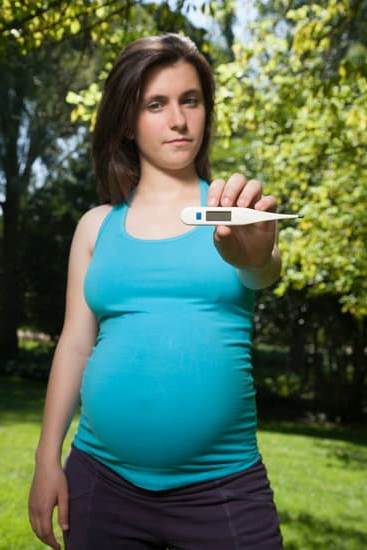Finding out whether or not you are pregnant can be an overwhelming and emotional experience. It is crucial to take a pregnancy test when the time is right, in order to ensure accurate results. Understanding what not to do before taking a pregnancy test is essential for obtaining the most reliable outcome.
When it comes to taking a pregnancy test, timing is everything. Knowing when to take the test and what actions to avoid beforehand can significantly impact the accuracy of the results. From avoiding certain substances and medications to managing stress levels, there are several factors that can affect the outcome of a pregnancy test.
In this article, we will explore the importance of taking a pregnancy test at the right time, as well as the potential pitfalls that can arise from not following instructions or engaging in certain activities before testing. By understanding what not to do before taking a pregnancy test, individuals can ensure that they are taking the necessary steps for accurate results.
Understanding the Timing
When it comes to taking a pregnancy test, timing is crucial. Understanding when to take a pregnancy test can significantly impact the accuracy of the results. Whether you are trying to conceive or are concerned about a possible pregnancy, knowing the right time to take the test is essential for accurate results.
Menstrual Cycle and Ovulation: Determining the Right Time
Women who have regular menstrual cycles can typically determine the right time to take a pregnancy test based on their cycle. It is generally recommended to wait until after your missed period to take a pregnancy test for the most accurate results. However, if you have irregular periods or are unsure about when you ovulate, it may be best to wait at least 19 days after having unprotected sex before taking a test.
Understanding Early Detection Tests: Potential Benefits and Drawbacks
There are early detection pregnancy tests available that claim to accurately detect pregnancy before your missed period. While these tests may provide quick results, they may not always be as accurate as waiting until after your missed period. It’s important to consider the potential benefits and drawbacks of using an early detection test and weigh them against the reliability of waiting for your missed period before testing.
Not Testing Too Early: The Importance of Patience
Testing too early can result in inaccurate results, leading to unnecessary stress and confusion. Even if you are anxious to find out if you are pregnant, it is crucial not to test too early. Waiting until after your missed period or at least 19 days after unprotected intercourse can greatly improve the accuracy of the pregnancy test results.
Understanding when to take a pregnancy test is an essential step in getting accurate results. By considering your menstrual cycle, understanding early detection tests, and being patient with testing, you can increase the likelihood of obtaining reliable pregnancy test results.
Avoid Consuming Alcohol and Drugs
While waiting to take a pregnancy test, it is important to be mindful of what substances you are putting into your body. Consuming alcohol and drugs can have a significant impact on the accuracy of the test results. It is essential to avoid these substances in order to ensure that the pregnancy test provides an accurate reading.
Here are some reasons why it is important to avoid alcohol and drugs before taking a pregnancy test:
- Impact on Hormone Levels: Alcohol and drugs can affect hormone levels in the body, which can interfere with the accuracy of the test results.
- Potential Health Risks: Consuming these substances can have negative effects on overall health, including fertility and the development of a fetus if pregnant.
- Misinterpretation of Results: Drugs and alcohol can cloud judgment and lead to misinterpretation of the test results, potentially causing unnecessary stress or worry.
It is crucial to prioritize your health when preparing to take a pregnancy test. By avoiding alcohol and drugs, you can ensure that you are taking the necessary steps to obtain accurate results and make informed decisions about your reproductive health. So remember, always consider what not to do before taking a pregnancy test.
The Dangers of Smoking
Smoking can have a significant impact on fertility and the accuracy of pregnancy test results. Studies have shown that women who smoke are more likely to experience fertility issues, including difficulty getting pregnant and an increased risk of miscarriage. This is due to the harmful chemicals in cigarettes that can affect egg quality and disrupt hormone levels, making it harder for a woman to conceive.
In addition to affecting fertility, smoking can also impact the accuracy of pregnancy test results. Nicotine and other chemicals in tobacco smoke can interfere with the production of hormones necessary for pregnancy. This interference can lead to false negative results on a pregnancy test, giving women the impression that they are not pregnant when they actually are.
It’s important for women who are trying to conceive to quit smoking in order to improve their chances of getting pregnant and to ensure accurate pregnancy test results. By avoiding this harmful habit, women can protect their fertility and take the necessary steps for a healthy pregnancy.
| Dangers of Smoking | Impact |
|---|---|
| Difficulty getting pregnant and increased risk of miscarriage | Harmful chemicals affect egg quality and disrupt hormone levels |
| Interference with hormone production and false negative test results | Nicotine and other chemicals in tobacco smoke |
| Quitting smoking improves chances of getting pregnant |
Not Following Test Instructions
When it comes to taking a pregnancy test, it is crucial to follow the instructions provided with the test kit. Failure to do so can lead to inaccurate results, causing unnecessary stress and confusion. Here are some common mistakes to avoid when taking a pregnancy test.
Ignoring the Testing Timeframe
One of the most important instructions when it comes to taking a pregnancy test is to wait for the designated timeframe before reading the results. Ignoring this timeframe can lead to false positives or false negatives. It is essential to follow the recommended time frame provided by the manufacturer, typically around 5 minutes, before interpreting the results.
Using Expired Test Kits
Another common mistake is using expired pregnancy test kits. Expired test kits may not provide accurate results and can lead to confusion and uncertainty. Be sure to check the expiration date on the package before using a pregnancy test kit and always use a new, unexpired one for accurate results.
Not Taking Into Account Urine Concentration
It is essential to take into account urine concentration when taking a pregnancy test. Using diluted or concentrated urine can affect the accuracy of the test results. It is recommended to use first-morning urine, as it is more concentrated and likely to contain higher levels of hCG – the hormone detected in pregnancy tests. Understanding and following these instructions can help ensure an accurate result when taking a pregnancy test.
The Risks of Taking Certain Medications
When it comes to taking a pregnancy test, there are certain factors that can interfere with the accuracy of the results. One of the key considerations is the use of certain medications, as they have the potential to affect the outcome of the test. It’s important to be aware of what not to do before taking a pregnancy test in order to ensure that you get accurate results.
Certain medications, such as those containing hCG (human chorionic gonadotropin) or fertility drugs, can interfere with the results of a pregnancy test. These medications are specifically designed to impact hormone levels in the body, which can directly affect the outcome of a pregnancy test. It’s crucial to consult with a healthcare professional if you are unsure whether any medications you’re taking could potentially interfere with the accuracy of a pregnancy test.
In addition to hCG and fertility drugs, certain other medications such as antihistamines, anti-anxiety drugs, and antipsychotic medications can also impact the results of a pregnancy test. These medications have been known to cause false-positive or false-negative results, leading to confusion and potential stress for individuals who are trying to determine whether they are pregnant. Therefore, it’s essential to be cautious about medication use when planning to take a pregnancy test.
| Medication Type | Potential Impact on Pregnancy Test Results |
|---|---|
| hCG and Fertility Drugs | Can interfere with hormone levels and lead to inaccurate results |
| Antihistamines, Anti-Anxiety Drugs, Antipsychotic Medications | Have been known to cause false-positive or false-negative results |
The Impact of Stress
Stress and anxiety have a significant impact on our overall health, including fertility and pregnancy. When it comes to taking a pregnancy test, it’s important to understand how stress can affect the outcome. Here are some things to consider when it comes to managing your stress levels before taking a pregnancy test:
- Stress Hormones: High levels of stress can lead to an increase in the production of cortisol and adrenaline, which can disrupt the hormonal balance needed for conception. This imbalance can potentially affect the accuracy of a home pregnancy test.
- Menstrual Cycle: Stress can also have an effect on your menstrual cycle, leading to irregular periods or even missed periods. This can make it difficult to determine the right time to take a pregnancy test, as it may not align with the typical timeline for testing.
- Mental Health: Additionally, high levels of stress and anxiety can lead to emotional strain, affecting your ability to interpret the results of a pregnancy test objectively. It’s important to try and approach the situation with a calm and clear mindset.
In order to ensure accurate results when taking a pregnancy test, it’s essential to manage stress levels as best as possible. This can include practicing relaxation techniques such as deep breathing exercises, meditation, yoga, or seeking support from friends and family. Taking proactive steps to reduce stress not only supports overall well-being but also increases the likelihood of obtaining accurate results from a pregnancy test.
Remember that self-care is crucial during this time, so be sure to prioritize activities that help you relax and unwind in order to minimize the impact of stress on your body and potential test results.
Not Waiting for the Right Time
Many women may feel anxious or eager to find out if they are pregnant and may be tempted to take a pregnancy test as soon as possible. However, it is important to understand that testing too early can lead to inaccurate results. The reason for this is that the body needs time to produce enough of the pregnancy hormone hCG (human chorionic gonadotropin) for it to be detectable in a home pregnancy test.
When a woman tests too early, there may not be enough hCG present in her urine for the test to detect, leading to a false negative result. This can be disappointing and frustrating, especially if the woman is actually pregnant but tested too early. In order to avoid these pitfalls, it is crucial to wait until the right time to take a pregnancy test.
It is recommended to wait until at least one week after a missed period before taking a pregnancy test. Testing too early can also lead to unnecessary stress and anxiety if the result is inconclusive or negative. Therefore, patience is key when it comes to waiting for the right time to take a pregnancy test in order to ensure accurate results.
Conclusion
In conclusion, it is vital to take the necessary precautions before taking a pregnancy test in order to obtain accurate results. Understanding the timing of when to take the test is crucial, as testing too early can lead to false negatives.
It is important to avoid consuming alcohol and drugs, as well as smoking, as these substances can all impact fertility and test accuracy. Additionally, not following test instructions and not waiting for the right time can also lead to inaccurate results.
Furthermore, taking certain medications and experiencing high levels of stress can interfere with pregnancy test results. It is essential to be mindful of these factors and take the appropriate steps before taking a pregnancy test. By being aware of what not to do before taking a pregnancy test and by following the guidelines provided, individuals can increase their chances of obtaining reliable and accurate results.
In order to ensure the most accurate outcome when taking a pregnancy test, it is crucial to be mindful of what steps to take and what not to do before proceeding with the test. By understanding the potential impact of substances, medications, stress, and timing on test results, individuals can make informed decisions that lead to accurate outcomes.
Ultimately, by taking the right steps for accurate results, individuals can find clarity in their pregnancy status and make informed choices about their future.
Frequently Asked Questions
What Should I Avoid Before a Pregnancy Test?
Before taking a pregnancy test, it’s best to avoid drinking excessive amounts of liquids, especially water, as it can dilute the levels of hCG in your urine. It’s also advisable to avoid alcohol and medications that may affect the accuracy of the test.
Can Anything Mess Up a Pregnancy Test?
Several factors can potentially interfere with the results of a pregnancy test. These include using an expired or faulty test, not following the instructions properly, and taking certain medications like fertility drugs or those containing hCG.
Can I Pee Too Much on a Pregnancy Test?
While it’s important to provide enough urine for an accurate pregnancy test result, there is such a thing as peeing too much on a pregnancy test. This can dilute the concentration of hCG in your urine, leading to a false negative result.
It’s best to follow the instructions provided with the test kit and use it at the recommended time of day for optimal results.

Welcome to my fertility blog. This is a space where I will be sharing my experiences as I navigate through the world of fertility treatments, as well as provide information and resources about fertility and pregnancy.





